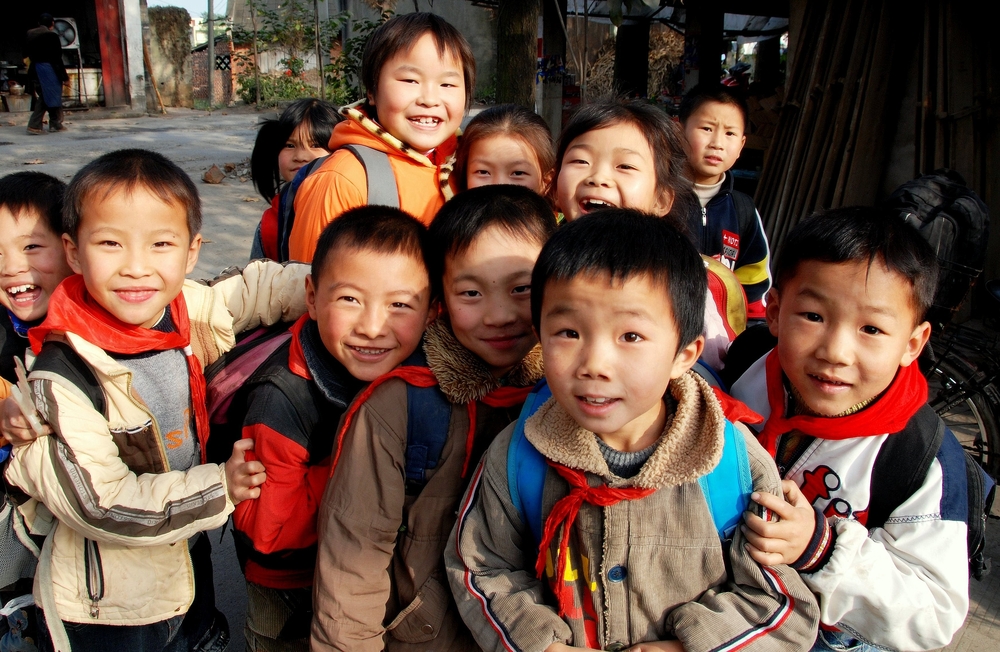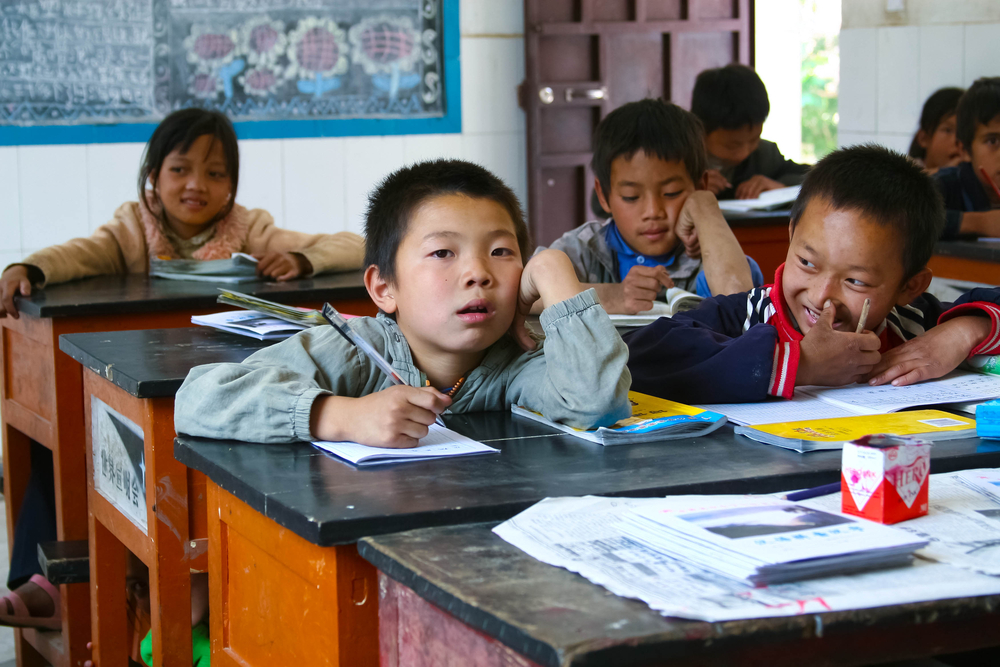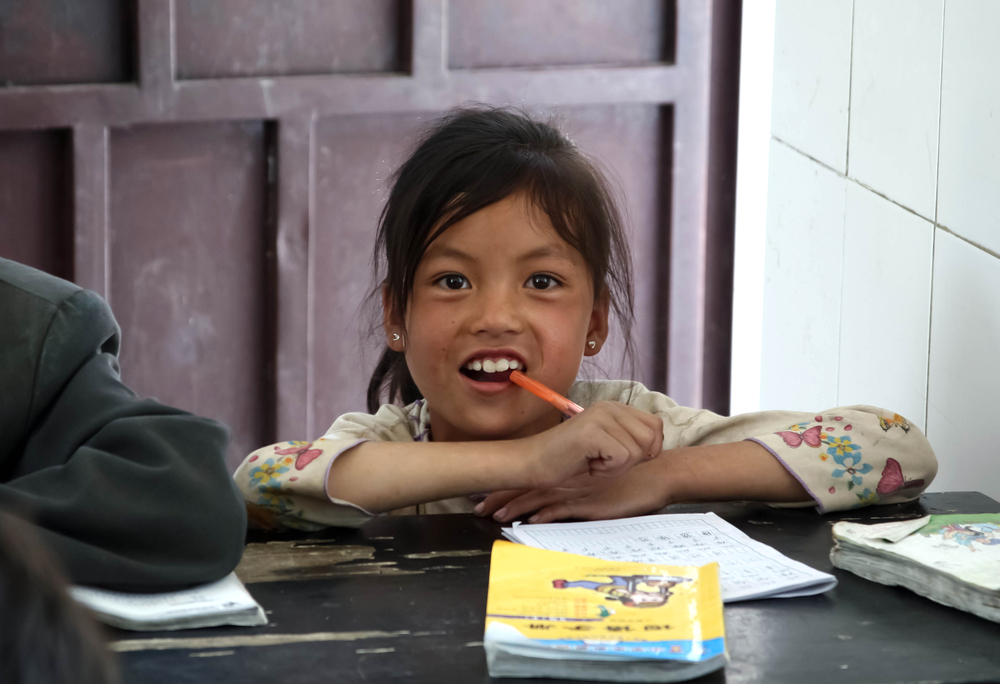A new early childhood development program, called “Nurturing the Future”, in an attempt to target children growing up in low-income and rural communities in China.
As the race to develop early childhood education gets fast underway all around the world, many children in low-income communities are falling behind, and struggling to find resources to provide them with the education and support they need. China, in particular, is finding itself lagging behind, because its low-income communities are finding it hard to fund their education system and provide educational support to their children.
Why is China Falling Behind?
China, one of the most rapidly developing economies and societies in the world, is also one of the biggest sufferers of massive income inequality. Although urban cities in China boast some incredible educational institutes, there is estimated to be more than 40 million rural toddlers who do not receive adequate care and education, and are, as a result, left behind in the workforce.
Due to the incredibly rapid development of China’s economy, much of the rural generation was either pushed into working in factories or taking on other manual labour jobs. Although at the time, these workers have a relatively steady income, questions are being raised about what the state of these workers will be in 10 or 20 years, when educated workers will be much more in demand.
Nurturing the Future
So what has been done to target this problem?
The national health commission and the Rural Education Action Plan (REAP), has introduced a new early childhood development program, called “Nurturing the Future”, in an attempt to target children growing up in low-income and rural communities in China, and encourage parents and guardians of children to provide better educational resources to their children at an earlier age.
In communities in which the average family can barely afford daily necessities, childhood education and support are not always of the top priority. This program works to teach parents and grandparents of children being brought up in these communities the necessity and importance of early childhood education, all the whilst finding affordable and viable methods to do so.
The Importance of Early Childhood Education
The program also involved a study into the importance of early childhood education on the cognitive development of children, and found that most educational growth occurs in the first three years of a child’s life.
Furthermore, the study found that “despite geographical differences, all young children’s development level is the same until they are six months old,” according to Luo Renfu the person who oversees the tutoring material for the “Nurturing the Future” program. This shows that regardless of whether a child is born into a high-end urban community in the heart of Beijing, or whether they’re born into a low-income family who makes a living off farming and manual labour, all children develop mentally in the same way, and thereof require the same education and development programs to aid in the growth.
“One-third of rural children drop out of high school” because they can’t catch up after their bad start. The problem also stems from the fact that many of these children’s’ parents do not appreciate the importance of communicating with their children, even at an early age.
Furthermore, many of these children are left in the care of their grandparents, who are often illiterate and not capable, physically or mentally, to provide the support young children need, and as most parents have to leave their homes to pursue factory jobs in cities, this is the only possible course of action.
Economic Benefit of Early Childhood Education
Currently, China spends 0.2 percent of its GOP on early childhood education, even though its education budget was 4.3 percent of the GOP in 2013. Based on studies such as those done by the “Nurturing the Future” program, investing in children’s education at a younger age will pay off as they get older. As with building a house or setting up any other successful structure, the foundation is the most important aspect of a child’s education.
“The job market in the future will be quite different”, says Zhang Linxiu, a researcher at the Chinese Academy of Sciences, and as the world market progresses, a different type of worker will soon be in demand in China. Although manual workers will always find their place in the workforce, demand for educated and skilled workers has steadily been growing as the pursuit for innovation continues. Ensuring that the future generation of workers is educated and skilled will not only best contribute to the economy, but to the social wellbeing of the community in general.
Providing early childhood education will be of economic benefit as it will cost less to provide an education at an early age rather than attempting to make up for the lost years of education and prepare them for a new educated workforce.
Even if we use just a small fraction of the energy we use to control China’s population in raising the demographic quality, China will see a brighter future, concludes Shi Yaojiang.
And hopefully seeing the positive results yielded by early childhood education programs will encourage other countries to implement such programs as well.
[divider]
What are you thoughts on China’s decision to invest in Early Childhood Education? Do you like their approach? Please share your thoughts and comments in the comment section below.















